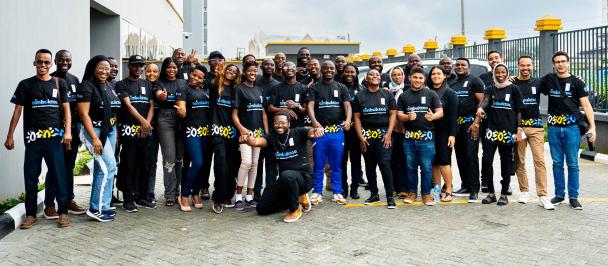By Angela Lusigi, Chaltu Daniel, Suleikha Sutter
A new narrative about Africa’s youth is unveiling. They are not troublemakers, they are Africa’s long-awaited positive disrupters. They bring with them a unique opportunity that will change Africa for the better.
At the just-concluded African Economic Conference 2019 on Jobs, Entrepreneurship and Capacity Development for Africa’s Youth that was held in Sham El Sheikh, Egypt, on 2nd to 4th December 2019, UNDP’s Chief Economist, Raymond Gilpin, said the youth “represent Africa’s bright future”.
As path-breakers of the African knowledge society, youth will contribute significantly to innovation and entrepreneurship on the continent if the necessary resources are mobilized to allow them to realize their full potential.
The more than 300 delegates at the conference, including young researchers, representatives of national and regional youth associations and policy-makers sat down to interrogate select policies and interventions that would work best for Africa. It also provided a unique opportunity to assess the effectiveness of ongoing reforms on addressing youth skills gap in Africa and developing their entrepreneurial capacities.
First, the youth population is set to double by 2030, which presents a great opportunity to increase the consumer demand for new products and services. This is a sure way of transforming Africa’s economies. We know that currently 1 in 3 Africans is aged between 15-29 and approximately 40% are under-employed. Rather than this being a challenge, it should be viewed as an opportunity. If young Africans could have access to a job and an opportunity to use their talent and creativity, these young consumers could be the next big wave of market opportunities for products made in Africa.
Second, the kind of jobs required to absorb this influx of new entrants in the job market will be found in areas that are often hidden or ignored. For example, traditional sectors like manufacturing and industries can tap into the immediate opportunities to grow based on increased economic complexity. Africa needed to create at least 2.6 million jobs in 2019 to meet the new entrants in the labour market aged 15 to 24. More opportunities for the youth can also come from upgrading the millions of jobs in services sector or by exploring hidden gems in agribusiness, tourism and the creative industry.
Third, entrepreneurship remains a powerful vehicle for youth empowerment. Contrary to popular belief, entrepreneurship is alive across Africa which has the highest rate of potential entrepreneurs - 56% compared to 21% in Asia and 31% in the Middle East.
However, gaps in technical, managerial and business management skills hampers productivity and competitiveness. This gap is closing through initiatives such as YouthConnekt, a UNDP-supported platform designed to connect the youth for socio-economic transformation, in 12 African countries working to create 10 million jobs, empower 25 million youth with skills, nurture 1 million young leaders connect 100 million youth and close the gender gap.
Despite progress, growth of entrepreneurship across Africa has been slow and uneven. A sizable number of these young entrepreneurs are being left behind because they lack the necessary skills, capital and mentorship required to grow their businesses.
A supportive environment that provides training, financial products and services for young entrepreneurs is fundamental to sustainability and more equal outcomes. Partnerships such as the UNDP-Tony Elumelu Foundation that bring together government, private sector, academia, youth organisations and development actors, are pivotal to strengthening this ecosystem. If there was better mapping and stronger networks to support enterprises within and between countries, more youth could be reached along the value chain.
Finally, skills development must be future-oriented and adaptive. Promoting a culture of innovation and continuous learning will ensure that todays’ youth are prepared for the jobs of the future that rely on new skills. Economic research and analysis with practical application can help to guide policies, actions and investment in new forms of capital such as psychological capital or resilience in other words.
Looking into the future, UNDP will continue to bring together Africa’s best young brains to elevate ground-breaking research to inform both policy and practice.
This year Ephraim Ndatabaye from DRC, Dolapo Adeyanju from Nigeria and Abou Kane from Senegal won the best paper awards at the conference for their work that provides new ways of looking at drivers of entrepreneurship and employability. These include entrepreneurial motivation, agribusiness and employment support programs.
We hope that this network of young thinkers and entrepreneurs will continue to drive innovative and positive disruption that will empower the next generation of Africa’s thought-leaders and influencers.

 Locations
Locations





